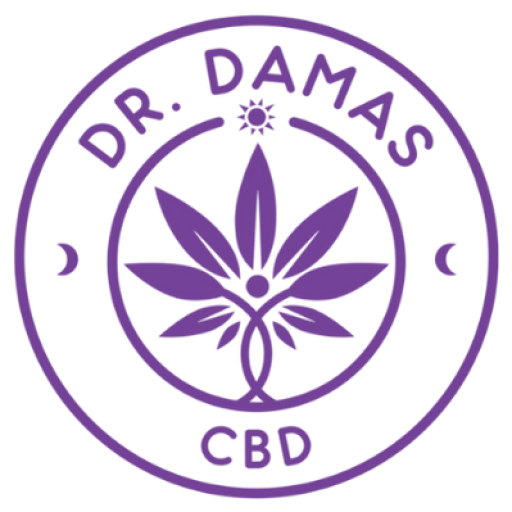This week we’re talking about a very interesting topic…sex. Valentine's day is right around the corner and some people may be looking forward to it while others not so much. It could actually be a very unpleasant day for a lot of people. Is that correct?
Absolutely correct. Valentine's day is like many other holidays in that it is a period of time that can be filled with high anxiety, depression and very little of the good stuff for a lot of people. There can be many reasons people lose their mojo. Some of it physical, but a lot of it psychological. That's where cannabis comes in. It can kind of help you get your sexy back.
You mentioned that a lot of it was psychological. What are we talking about? Anxiety and depression?
Anxiety and depression are big contributors for sure, as a matter of fact sexual dysfunction is a common symptom of depression. And sexual dysfunction as I define it is sexual intimacy that is not to the satisfaction of all parties involved. We have to keep in mind that sexual intimacy is not the only way to be intimate but it is a very important part of our existence. Studies have shown that having intimate relationships is good for your overall health both physically and mentally. And greater intimacy leads to more sex which in turn leads to more intimacy.
How does cannabis then help with the anxiety, depression or psychological things that can affect your intimacy?
Cannabis affects sexual behavior in a number of ways. Cannabinoids, specifically THC have the ability to interact with receptors in the brain (cannabinoid receptors) which cause a release in neurotransmitters that result in feelings of pleasure, euphoria and pleasure seeking (hedonistic) behavior. In other words, consuming cannabis can help your mind be more receptive and to experience greater pleasure. It’s also why you get the munchies and the giggles etc etc.
Very interesting, and you mentioned not only psychologically but physically and well? How does cannabis/ THC/ CBD affect the body?
As I mentioned, cannabinoid receptors are all throughout our nervous system and our body including our sexual organs. They help increase a person's sexual pleasure sensation. In women this can lead to increased lubrication and in men getting or maintaining an erection. Cannabinoids are also mild vasodilators which also helps increase the strength and duration of erections. Because they are mild analgesics, they can help decrease post coital discomfort (from both vaginal and anal sex). Sexual displeasure is such a prevalent complaint amongst our patients that we even created a CBD intimate oil to help them!
A CBD “intimacy oil”?
Yes, most of my patients are women and a common complaint is sexual dissatisfaction. Like mentioned earlier, a lot of it is psychological like anxiety which we take care of with cbd oil, capsules or gummies, but sometimes there is a need for a bit more. Lubricants made with cannabinoids can increase sexual pleasure, increase the likelihood of an orgasm, decrease pain and inflammation- an overall more pleasurable experience!
But what are the drawbacks?
Most of the drawbacks come in the form of THC. Sex with CBD is pretty much smooth sailing but sex with THC in too high a dose for example can cause paranoia which can lead to loss of sexual desire. THC in too high a dose can cause anorgasmia (inability to have an orgasm) which is definitely not the outcome anyone wants! My best advice is start off slow with whatever you're doing. If you have questions, get advice from a qualified professional.
REFERENCES
1Cohen A, Vakharia SP, Netherland J, Frederique K. How the war on drugs impacts social determinants of health beyond the criminal legal system. Ann Med. 2022 Dec;54(1):2024-2038. doi: 10.1080/07853890.2022.2100926. PMID: 35852299; PMCID: PMC9302017.
2Kolodny A, Courtwright DT, Hwang CS, Kreiner P, Eadie JL, Clark TW, Alexander GC. The prescription opioid and heroin crisis: a public health approach to an epidemic of addiction. Annu Rev Public Health. 2015 Mar 18;36:559-74. doi: 10.1146/annurev-publhealth-031914-122957. Epub 2015 Jan 12. PMID: 25581144..
3Barner JC, Bohman TM, Brown CM, Richards KM. Use of complementary and alternative medicine for treatment among African-Americans: a multivariate analysis. Res Social Adm Pharm. 2010 Sep;6(3):196-208. doi: 10.1016/j.sapharm.2009.08.001. PMID: 20813333; PMCID: PMC2933406..
4Mills SEE, Nicolson KP, Smith BH. Chronic pain: a review of its epidemiology and associated factors in population-based studies. Br J Anaesth. 2019 Aug;123(2):e273-e283. doi: 10.1016/j.bja.2019.03.023. Epub 2019 May 10. PMID: 31079836; PMCID: PMC6676152.
5Macfarlane GJ, Barnish MS, Jones GT. Persons with chronic widespread pain experience excess mortality: longitudinal results from UK Biobank and meta-analysis. Ann Rheum Dis. 2017 Nov;76(11):1815-1822. doi: 10.1136/annrheumdis-2017-211476. Epub 2017 Jul 21. PMID: 28733474.
6National Research Council (US) Panel on DHHS Collection of Race and Ethnic Data. Eliminating Health Disparities: Measurement and Data Needs. Ver Ploeg M, Perrin E, editors. Washington (DC): National Academies Press (US); 2004. PMID: 25009872.
7 Institute of Medicine (US) Committee on Advancing Pain Research, Care, and Education. Relieving Pain in America: A Blueprint for Transforming Prevention, Care, Education, and Research. Washington (DC): National Academies Press (US); 2011. PMID: 22553896.
8Chronic Pain: In Depth | NCCIH
Website title:National Center for Complementary and Integrative Health
URL:https://www.nccih.nih.gov/health/chronic-pain-in-depth
Date accessed:December 14, 2022.
9Crocq MA. History of cannabis and the endocannabinoid system. Dialogues Clin Neurosci. 2020 Sep;22(3):223-228. doi: 10.31887/DCNS.2020.22.3/mcrocq. PMID: 33162765; PMCID: PMC7605027.
10Piper BJ, Beals ML, Abess AT, Nichols SD, Martin MW, Cobb CM, DeKeuster RM. Chronic pain patients' perspectives of medical cannabis. Pain. 2017 Jul;158(7):1373-1379



